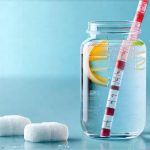Electrolyte powders have exploded in popularity, largely driven by fitness trends, outdoor activity enthusiasm, and clever marketing. What began as a rehydration tool for endurance athletes has now become commonplace among individuals seeking to optimize hydration during everyday workouts, or even as a perceived boost to overall wellbeing. While electrolytes are undeniably crucial for bodily functions – nerve impulses, muscle contractions, fluid balance – the overconsumption of these readily available powders can surprisingly lead to a range of digestive issues, most notably loose stools and diarrhea. This isn’t necessarily an indication that something is wrong with you; rather, it often signals that your body is reacting to an imbalance created by excessive electrolyte intake. Understanding why this happens, recognizing the signs, and adjusting your approach are key to enjoying the benefits of electrolytes without unwelcome side effects.
The core issue revolves around osmotic balance. Electrolytes – sodium, potassium, magnesium, calcium, chloride – draw water with them. This is how they function within the body, facilitating essential processes. When you rapidly increase electrolyte concentration in your digestive system through powder consumption, especially if it’s beyond what your body needs or can efficiently process, water is pulled into the intestines. This influx of water softens stools and accelerates intestinal transit time, leading to loose bowel movements. Furthermore, some electrolyte powders contain ingredients like sugar alcohols (sorbitol, xylitol) or artificial sweeteners which are known osmotic agents themselves, exacerbating this effect in susceptible individuals. The seemingly simple act of mixing a powder with water can therefore disrupt the delicate equilibrium within your gut.
Understanding Electrolyte Imbalance & Digestive Disruption
The human body is incredibly adept at maintaining homeostasis – a stable internal environment. Our kidneys play a pivotal role in regulating electrolyte balance, excreting excess amounts and conserving what’s needed. However, consistently bombarding the system with large doses of electrolytes from powders can overwhelm this regulatory capacity. Many commercially available electrolyte drinks are formulated with significantly higher concentrations than naturally required for most people; they cater to extreme endurance athletes losing substantial amounts through sweat during prolonged exertion. For the average person undertaking moderate activity, these high levels are often unnecessary and potentially disruptive. It’s important to remember that we obtain electrolytes from a diverse range of food sources – fruits, vegetables, dairy products, even water itself – and supplementation should be considered judiciously, based on actual needs.
The specific composition of the electrolyte powder also matters significantly. Sodium is often the most abundant electrolyte in these powders, and while vital for hydration, excessive sodium intake can draw more water into the intestines than potassium or magnesium can retain, contributing to diarrhea. Magnesium, conversely, has a well-known laxative effect when consumed in large quantities – many over-the-counter laxatives actually contain magnesium citrate or hydroxide. Even seemingly benign ingredients like citric acid found in some formulations can irritate the digestive tract and contribute to loose stools in sensitive individuals. The bioavailability of electrolytes also varies; not all forms are absorbed equally well, meaning that a higher dosage doesn’t necessarily translate to greater benefit.
Finally, individual sensitivity plays a large role. What constitutes an “overuse” amount differs from person to person based on factors like hydration status, activity level, diet, and underlying gastrointestinal health. Someone with pre-existing conditions like Irritable Bowel Syndrome (IBS) or inflammatory bowel disease may be far more susceptible to the effects of electrolyte imbalance than a healthy individual. Therefore, there’s no one-size-fits-all answer when it comes to determining appropriate intake; careful self-monitoring and adjustment are essential. Understanding your gut’s reaction can even help in building a timeline of gut recovery through testing.
Identifying the Signs & Symptoms
Recognizing the early warning signs is crucial for preventing severe digestive distress. The initial indicator is often a subtle change in stool consistency – becoming softer than usual. This can quickly progress to more obvious loose stools, increased frequency of bowel movements, and even watery diarrhea. Bloating, abdominal cramping, and nausea are frequently accompanying symptoms. It’s easy to dismiss these as simply “something I ate,” but if they consistently occur after consuming electrolyte powder, the connection should be investigated.
It’s important to differentiate between electrolyte-induced diarrhea and other causes of digestive upset. Food poisoning, viral gastroenteritis (the “stomach flu”), or underlying medical conditions can all present with similar symptoms. Consider when the symptoms began in relation to your electrolyte consumption. If they consistently appear within hours of drinking an electrolyte powder, it’s a strong indication that the powder is the culprit. Pay attention to other accompanying signs – dehydration, fatigue, and muscle weakness – which might suggest more serious issues requiring medical attention. It’s also important to be aware of signs from test results that call for diet overhaul if these symptoms are chronic.
If you suspect electrolyte overuse is causing your digestive problems, the first step is to temporarily discontinue use of the powders. Observe whether your symptoms improve over 24-48 hours. If they persist despite stopping the powder, seek advice from a healthcare professional to rule out other potential causes. Remember, self-diagnosis can be misleading; a qualified medical evaluation provides the most accurate assessment. You might also want to review key takeaways from tracking digestive data over time for more insights.
Strategies for Minimizing Digestive Issues
Preventing electrolyte-induced diarrhea is far easier than treating it. The cornerstone of prevention lies in moderation and mindful consumption. Before reaching for an electrolyte powder, honestly assess your hydration needs. Are you engaging in intense physical activity for extended periods? Or are you simply trying to rehydrate after a light workout? In many cases, plain water is sufficient. If you do choose to use an electrolyte powder, start with the smallest recommended dosage and gradually increase it only if necessary.
- Prioritize whole food sources of electrolytes: Bananas (potassium), leafy greens (magnesium), dairy products (calcium), and salted nuts (sodium) offer a natural and balanced approach to replenishment.
- Dilute your electrolyte powder more than instructed: This reduces the concentration of electrolytes entering your digestive system at once.
- Avoid powders containing high amounts of sugar alcohols or artificial sweeteners.
- Time your consumption strategically: Drink electrolyte solutions during exercise rather than in large quantities afterward. This allows for gradual absorption and minimizes the shock to your digestive system. Knowing how your gut reacts to overuse of antacids can also inform these decisions.
Rehydration & Gut Recovery
If you’ve experienced diarrhea due to electrolyte overuse, rehydration is paramount. Water alone isn’t always sufficient, as it can further dilute electrolytes. Instead, focus on an oral rehydration solution (ORS) containing a balanced mix of water, sodium, and glucose. ORS helps the body absorb both fluid and electrolytes more effectively. Avoid sugary drinks like juice or soda, which can worsen diarrhea by drawing more water into the intestines.
Once your bowel movements have returned to normal, focus on gentle gut recovery. The BRAT diet – Bananas, Rice, Applesauce, Toast – is a classic recommendation for soothing digestive upset. These foods are bland and easy to digest, minimizing further irritation. Probiotic-rich foods like yogurt (if tolerated) can help restore beneficial bacteria in the gut. Avoid fatty, fried, or spicy foods until your digestive system has fully recovered. If diarrhea persists beyond 48 hours or is accompanied by severe symptoms like fever, blood in stool, or extreme dehydration, seek medical attention immediately. It’s also important to rule out recognizing the signs of liver damage from OTC medications as a potential cause for digestive distress.


















